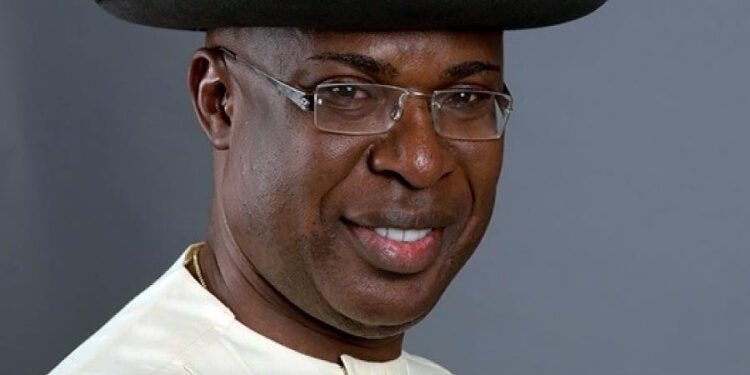By John Ikani
Ahead of its plan to fully deregulate the downstream sector of the petroleum industry, the Federal Government of Nigeria has said that it plans to work with marketers to convert 200,000 vehicles from using petrol to compressed natural gas (CNG) popularly called autogas this year.
Minister of State for Petroleum, Timipre Sylva, made this known when he appeared on Channels Television’s Newsnight to clarify the Government’s stance on removal of petrol subsidy on petrol.
Background
Earlier the Minister had met with oil marketers in the downstream sector to perfect plans for the full deployment of autogas in filling stations and the conversion of 200,000 commercial vehicles to run on gas this year.
At the meeting, which was convened in Abuja by Sylva, the Government unveiled the 2022 Framework for the deployment of CNG (Compressed Natural Gas, popularly called autogas) in Nigeria.
In the framework, the Government explained that with abundant gas reserves of about 206.53 trillion cubic feet, a population of about 200 million people, and the enactment of the Petroleum Industry Act, which eliminated the continuous absorption of petrol subsidy, it was now vital to deploy autogas.
It stated that its priority now was the rapid and strategic introduction of Natural Gas Vehicles as an alternative fuel for transportation in Nigeria in line with the approved National Gas Policy.
Three implementation options were highlighted in the document, as the Government stated that in the first option, its target was to convert one million public transport vehicles and install 1,000 refuelling centres within 36 months.
For the first 18 months it targets to achieve 500,000 conversions and 580 refuelling centres supplied by five Original Equipment Manufacturers, among other targets.
In the plan, the Government targets to convert 200,000 commercial vehicles this year, including tricycles, cars, mini-buses and large buses.
What the Minister is saying
“So we have to sit back together to now thinking about the process that can have the least effect on the people. That is why we are thinking of a lot of options like giving them an alternative fuel which will be cheaper and that is why we are looking at autogas,” the Minister said.
“We believe that will give an alternative so that if they find PMS too expensive, then they can have an alternative. Of course, we are looking at the impact it would have on their personal income and expenditure.”
He added that the Vice President Yemi Osinbajo, in his capacity as the Chairman of the National Economic Council, is also leading an effort in collaboration with state governors to discuss the government’s plans to unveil palliatives to the people.
“The Vice President is also leading an effort, discussing palliatives to the people. All those are the things we are discussing. We need to bring everything together before we can now come out and say look this is the package we have and this is the policy direction towards subsidy removal.”
In case you missed it
The Federal Government had in December 2020 rolled out an autogas programme called the National Gas Expansion Programme.
The programme involves the conversion of fuel-powered cars, generators from petrol to gas. It is aimed at deepening domestic usage of natural gas in its various forms.
After the launch, the Government said that vehicle owners in the country will pay N250,000 to convert their cars to autogas.
Justice Derefaka, Technical Adviser on Gas Business and Policy Implementation to Minister of State for Petroleum, had explained that vehicle owners will have different payment plans to convert their cars to autogas.
“The cost varies,” Derefaka said during an interview on Channels Television’s Sunrise Daily. “So, in terms of cost implication, it depends on the cylinder of the vehicle and of course, for a typical SUV cylinder, it is a bit higher but on the average, it is around N200,000 to N250,000 and this is for a four-cylinder vehicle but it becomes a little bit higher for a six-cylinder SUV vehicle.”




































